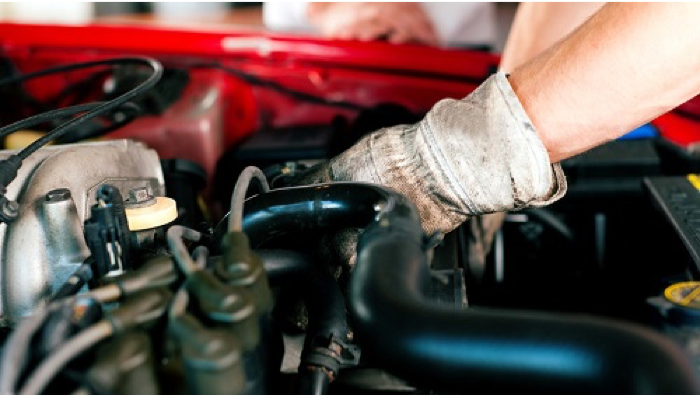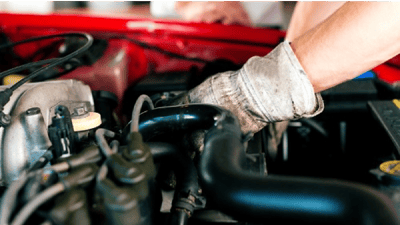Best Family Cars
There’s a lot of competition in the family vehicle market, so it can be daunting to sift through countless vehicles to find one that fits your...
Manage your everyday finances with convenient accounts, flexible cards, and personalized service designed to fit your life.
At First Federal Bank, we offer flexible mortgage solutions for almost any situation, helping you secure the right financing for your dream home.
Business banking offers secure financial management, streamlined transactions, credit options, and tools to help businesses grow efficiently and sustainably.
2 min read
First Federal Bank : March 11, 2024 10:00:00 AM EDT

 Your vehicle runs at its best when you take care of it. When you follow the recommended maintenance schedule outlined in your owner’s manual, you’re optimizing the quality of your vehicle’s performance and contributing to its longevity. If you want to make the most of your ride for as long as possible, incorporate the these service needs into your automotive routine:
Your vehicle runs at its best when you take care of it. When you follow the recommended maintenance schedule outlined in your owner’s manual, you’re optimizing the quality of your vehicle’s performance and contributing to its longevity. If you want to make the most of your ride for as long as possible, incorporate the these service needs into your automotive routine:
Regular oil changes
Regular oil changes are one of the most important keys to keeping your vehicle’s engine running efficiently and effectively, since oil absorbs dirt, dust, debris, and other junk. Old oil is not effective at trapping foreign components, so it needs to be changed regularly — whether based on mileage or your driving conditions. You’ll want to change the oil filter, too, or at least check if it needs replacing. Typically, oil filters last longer between changes compared to the oil itself.
“The non-synthetic oil that was traditionally used in the past always had a 3,000-mile rule of thumb, but most cars today run on synthetic, which can safely last between 5,000 and 10,000 miles between oil changes, depending on the type. Remember to check the engine’s oil level on a regular basis, too. Once every two weeks and before any long road trips should suffice,” writes Scott Sowers for CarGurus.com.
Tire maintenance
Never overlook the importance of the condition of your vehicle’s tires. They are a vital component in your driving safety, and it’s crucial your tires are properly inflated and free from damage.
“A flat tire is a hazard that can be dangerous to you and your car. There are several preventative steps you can take to help avoid a blowout, including rotating your tires every 5,000 to 10,000 miles and watching for tire recalls,” advises Allstate.com.
Battery check and windshield wiper replacement
Although your vehicle’s battery has the potential to last for approximately three to four years, its longevity can be severely altered by weather and your driving habits.
“Extreme temperatures, age, and long periods of non-use affect batteries. Keep in mind batteries are warrantied and pro-rated by time, not mileage, and are designed to wear out,” advises Sowers.
Another item susceptible to weather conditions is your vehicle’s windshield wipers. A soggy spring or a freezing winter requires your wipers to work overtime. Damaged or worn wipers will hamper your visibility and put your drive at risk.
“Knowing how to inspect your wiper blades regularly and replace them when necessary is one way to help keep your car safe,” explains Allstate.com.
Brake attention
Your vehicle’s stopping power is a non-negotiable service you should prioritize. Whether it’s changing the brake fluid or reviewing the quality of your brake pads/shoes and rotors, a well-maintained braking system is essential for your safety and the safety of those around you.
According to Sowers, most manufacturers suggest replacing brake fluid every 20,000 to 45,000 miles, brake pads/shoes at 50,000 miles, and brake rotors when your vehicle hits approximately 60,000 miles.
These are a few essential services you need to maintain your vehicle. Refer to your owner’s manual for more or consult the opinion of a trusted automotive professional.

There’s a lot of competition in the family vehicle market, so it can be daunting to sift through countless vehicles to find one that fits your...

If the thought of negotiating the purchase price of a new vehicle at a car dealership makes your heart race and your palms sweat, take solace. Many...

2 min read
If you’re in the market for a used vehicle, you can choose to purchase a former rental car or a privately-owned car. Buying a rental car has its own...
Manage your accounts, make payments, and more.
Open an account with us.